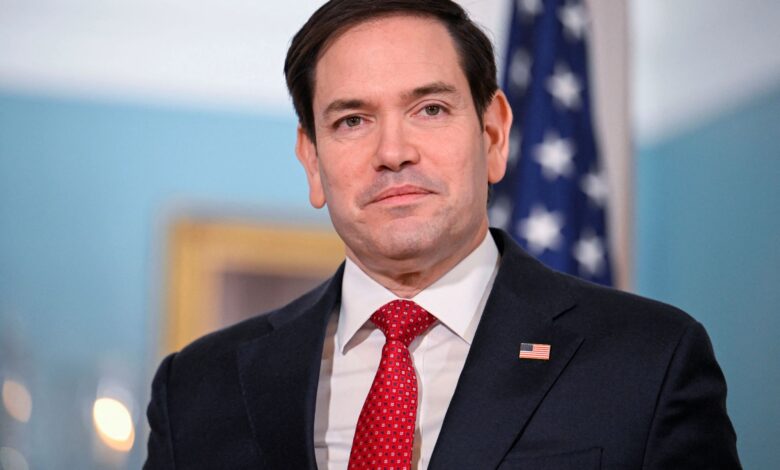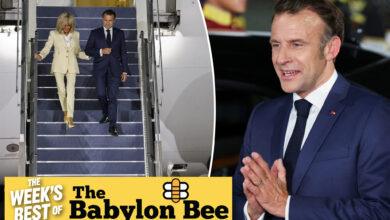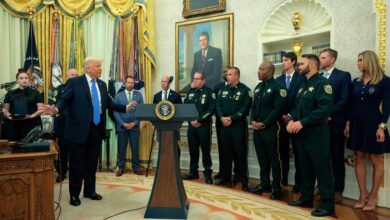Marco Rubio must convince US allies: ‘America First’ is back

Secretary of State Marco Rubio has a historic opportunity at this week’s Munich Security Conference to define what an “America First” foreign policy means for Europe in President Trump’s second term.
If he builds on four key themes from his Senate confirmation testimony last month, he can offer both clarity and reassurance to allies wary of Trump 2.0.
Many European leaders fear that America seeks to withdraw from the world.
In Munich, Rubio can calm their nerves — and make clear that the new era of American diplomacy is one of strength, not retreat.
The setting for Rubio’s first major European speech is as symbolic as it is strategic. The annual conference in Munich draws top officials and policymakers from across the globe.
This idyllic German city is also a frequent stage for making history, for better or worse.
It was in Munich where Neville Chamberlain met Hitler, only to fail disastrously in his quest for peace.
It was also in Munich where, in 2007, Vladimir Putin claimed Russia posed no threat to European peace — before launching invasions of Georgia and Ukraine.
For Rubio’s visit, the task must be to set the record straight on “America First.”
First, he should draw a sharp contrast between past complacency and the present moment.
In his inaugural address, Trump framed American leadership as a stark choice: between presiding over Western decline or restoring its strength.
“From this moment on, America’s decline is over,” he declared.
But as Trump has identified the problem, adversaries are manipulating the mechanisms of the old post-World War II “order” to advance their interests at the expense of America’s own.
At his confirmation hearing, Rubio put it bluntly: “The postwar global order is not just obsolete; it is now a weapon being used against us.”
Second, Rubio should articulate an uncomfortable fact the Europeans already recognize: The postwar order failed to maintain peace in their region — and elsewhere.
America suffers for it, but so does Europe. For example, Moscow and Beijing exploit their permanent seats on the UN Security Council to block penalties on Russia’s invasion of Ukraine, shield Iran, and undermine international stability by “dismembering” sanctions on North Korea.
Instead of tranquility and predictability around the world, America and its allies face the opposite.
Third, the secretary must make it clear that neither Europeans nor Americans seek endless wars around the world.
But avoiding war and establishing peace in countries like Ukraine requires strength and resolve, not wishful thinking.
Plainly stating America’s goals for post-war Ukraine — that it must remain sovereign and independent — will be essential for Rubio’s mission to Munich.
He should also address the bigger problem: That Russia and Iran, backed by China, will continue to seed global instability if nothing changes.
Trump has been clear and consistent in stating that peace, in particular American deterrence, comes through strength. Weak nations invite threats; strong ones prevent them.
That means NATO allies must strengthen their defenses.
Rubio can point to decades of European under-spending on defense. These investments should not be primarily America’s burden to bear, in Europe and elsewhere.
Fourth, Rubio can use his platform in Munich to directly challenge to Europe: Answer America’s resolve, not with cynicism but action.
Trump has called for NATO allies to raise their defense spending to 5% of GDP. Should European leaders balk at the increase, Rubio can remind them that Poland — NATO’s largest eastern ally — is already set to hit 4.7% this year.
The question is not whether a 5% expenditure is possible, but whether Europe is serious about defending itself.
Nations willing to shoulder their share will distinguish themselves as true allies in security; those that refuse will be complicit in their own vulnerability.
Finally, Rubio’s greatest asset in Munich will be his constant optimism — his belief that America, despite its challenges, remains the indispensable force for order in a chaotic world.
His Senate track record proves that Rubio has never confused idealism with naivety, nor has he mistaken hope for a strategy.
Rather, as he told the Senate committee during his confirmation hearing, current global conditions require a change: “We are called to create a free world out of chaos once again,” he declared.
In Munich, Rubio must make clear that America is ready to do just that — and Europe must be ready to assist us.
Peter Doran is an adjunct senior fellow at the Foundation for Defense of Democracies.




